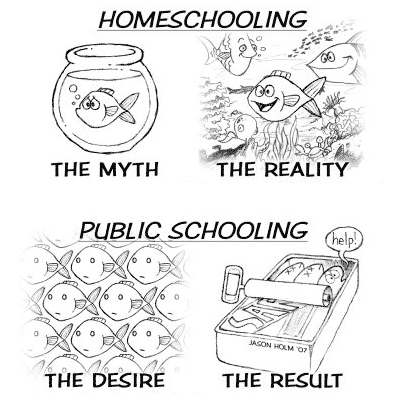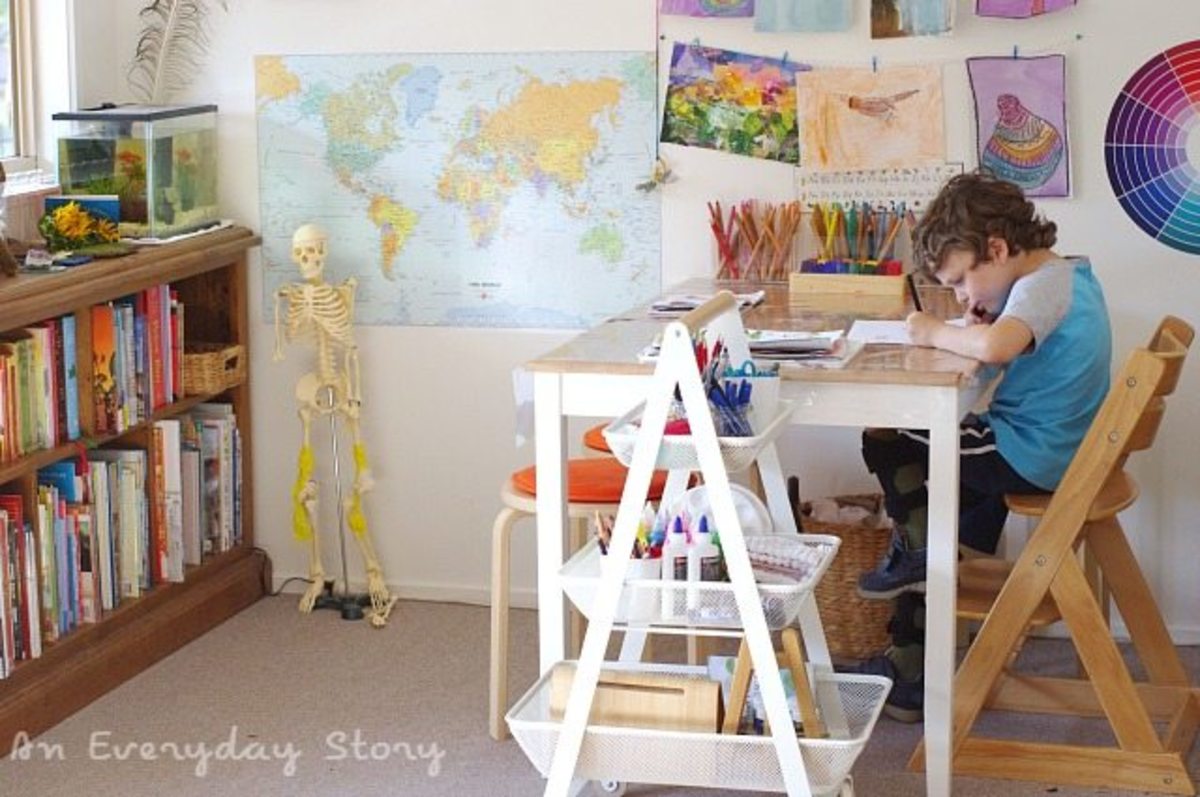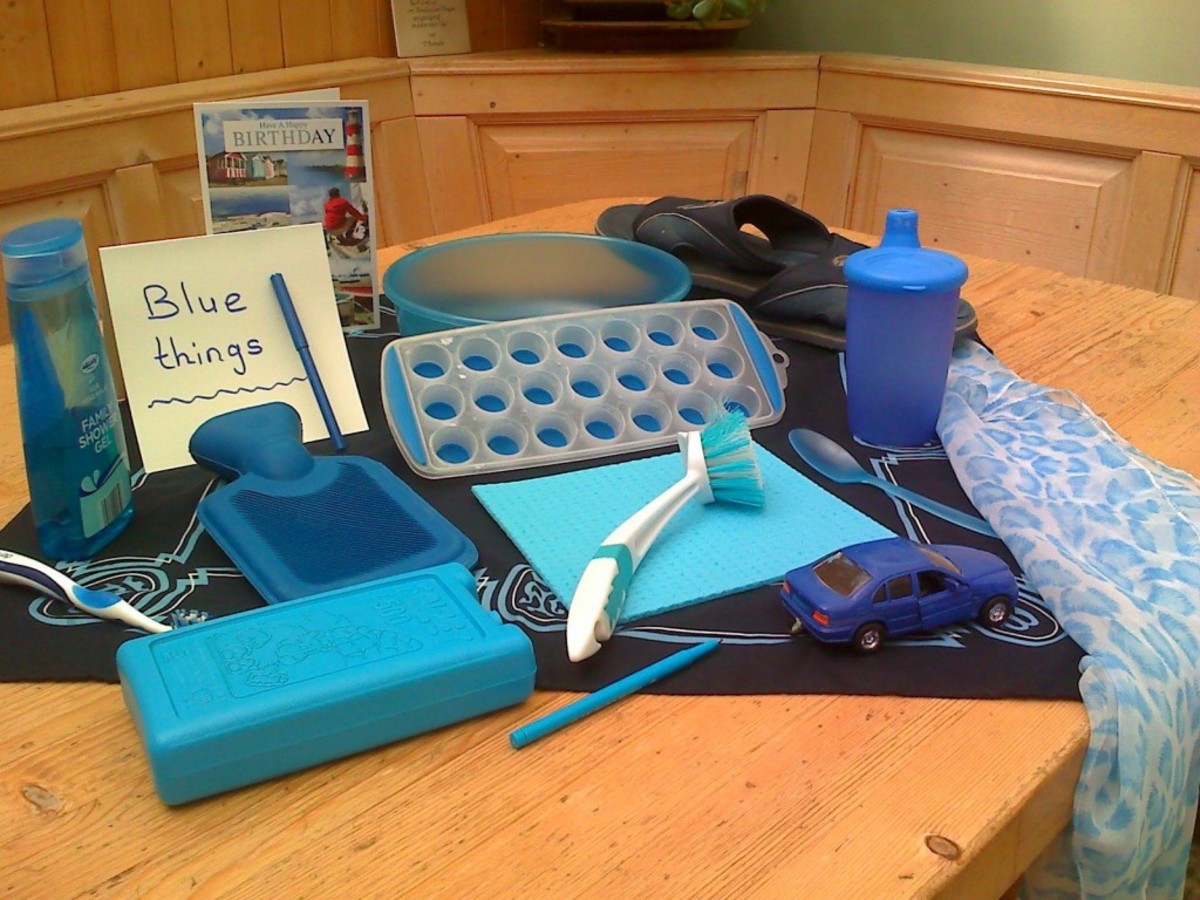To Homeschool Or Not

Within the past few decades home schooling has jumped from obscurity to prominence, with thousands of Australian youngsters now educated at their homes.
Professor Roger Hunter, commenting on the revival of home schooling in Australia, believes that from the ten thousand students home educated in 1994, the figure has steadily increased annually by 20% .
Homeschooling involves parents providing education for their own children instead of sending them to school. However, this is not to be mistaken for the government supervised distance education program.
For most of its adherents the homeschooling movement has more to do with parental choice than sickness or geographical isolation, as is the case with many in the government program.
According to Dr.Terry Harding, former principal of Southern Cross Educational Ent. Ltd., suppliers of home schooling curriculums within Australia, ‘The responsibility to educate one’s child oneself comes with the role of being a parent... should a parent not wish to implement this primary responsibility, he may delegate this responsibility to an institution... The responsibility and thus the choice in the matter lays with the parent, not with an outside authority.’
The responsibility to educate one’s child oneself comes with the role of being a parent... should a parent not wish to implement this primary responsibility, he may delegate this responsibility to an institution... The responsibility and thus the choice in the matter lays with the parent, not with an outside authority.
— Dr Terry HardingSignificantly, though more than 90% of home schooler’s live in areas of easy access to public schooling, they choose to avoid what is convenient and publicly funded in favour of teaching in their own home.
The reasons parents choose home schooling are as diverse as the families involved, the big five being:
- Home-schooling is a religious obligation (one third of parents have religious reasons).
- To rescue their child from bullying in the school yard
- Home-schooling is a parental obligation.
- Homes-schooling is more effective academically.
- Desire for greater input into child’s overall growth, free of negative peer pressure.
Other reasons include: Disappointment with public system; greater freedom; more rewarding; safer environment; enhances family closeness. And the list goes on.
Supporter's say that if results vindicate method, then the fruits of this system lend it weight as a legitimate means of education.

What does the Research tell us?
Although limited Australian research figures are available, American statistics are more comprehensive. Leading home education researcher Dr. Brian Ray, of the National Home Education Research Institute Oregon, reports that between 1996-97, 700,000 to 1.15 million children where home educated in the US.
This amounts to an estimated $31 million saved in taxes—home schooled families being unreliant on public, tax-funded, resources.
Dr. Gary Knowles of the University of Michigan, in a study of home-educated adults, found that all were employed and none on welfare. US research also found that the home educated scored consistently higher academically than those conventionally schooled, with behavioural problems also less in the home-educated sector.
Researchers Tisard, Hughes, Pinkerton, & Carmicheal in an early 80s survey found that parents made more intellectually stimulating demands than teachers, demands more often answered by children at home than those at school.
Children in school also asked fewer questions; 1983 research found that ‘children seem to learn very quickly that their role at school is to answer, not to ask questions.’
Research also indicates that older home-schooled children up to 15 do better academically than the average out-of-home schooled child, a fact documented by academic researchers in Western Australia, Canada, and most US states.
The Who's Who of Homeschoolers
And the list of home schoolers who’ve gone before —including self taught and privately tutored— reads like an illustrious who’s who list; Winston Churchill, Benjamin Franklin, Thomas Edison, Leonardo da Vinci, Agatha Christie, Douglas MacArthur, Abraham Lincoln, Franklin D. Roosevelt, Charlie Chaplin, Albert Schweitzer, John Wesley. To name a few.
Each State has it's own regulation involving those wishing to home-school. Janet Andrews of the Department of Education QLD, says to those not happy with what or how children are taught in the available educational programs, and seeking alternatives, laws apply.
Firstly, approval must be sought from the Minister of Education. An application for dispensation will require either a) the teaching parent is a registered teacher. b) A registered teacher is engaged/employed by the parent(s), or, c) A teaching parent who is not registered but is enrolled in an approved distance education program.

Why Parents Do And Don't Home-school
When asked, other parents responded to the idea of home educating their children with some trepidation, comments like, 'I couldn't, I'm not a trained teacher ', 'I need my free-time and sending the kids to school provides that time', 'The kids would drive me crazy', were common concerns.
In response to such concerns, the A.C.A Home School Guidebook advises:
‘All the evidence supports the fact that the average high school educated mum, able to read and write and who is warm and caring, makes the ideal supervisor of her child's learning program... Parents do not need to know everything in order to teach. Nor to they need a piece of paper certifying that they have met some external criteria for teaching... One has only to look at the mess the conventional educational system has produced to put the lie to that assertion. The example and enthusiasm of loving parents as they involve themselves in learning with their children will do much to motivate and encourage their children to learn.’
This raises the contested question: How much authority should a government have over the private lives of its citizens and their preferential choices in regard to their families education? Whose decision should it be?
However, regardless of ones opinion on that, the attitudes of home schooled kids, with few exceptions, seems positive. According to some home-schooled students I interviewed, the advantages were, ‘Work can be done at a pace best for me’, ‘I get to to spend more time with my family’, ‘Greater freedom of time’, ‘More relaxed’. And disadvantages? ‘More involved in housework’, ‘Same teacher every year’, ‘Limited time spent with other children’.
In regards to that last statement, the objection often raised loudest against home-schooling is the lack of social skill development. This has been voiced by many as a misgiving toward the home school system, believing a child kept at home, away from his/her peers, risks growing up socially inept.
However, home-schooling families argue the opposite, saying that the out-of-home schooling system is more likely to create social inaptitude than a home-schooled one.
They stress that the excessive peer-to-peer ratio at schools, six hours a day, five days a week, represses social maturity. Creating peer dependent individuals who conform to peer pressure in order to gain approval, even though the conformity may entail foolish, rebellious or immoral behaviour contrary to the better judgment of the child.
On the flip side, they emphasis that the home environment is more evenly proportioned. The frequent adult-to-child contact encourages children to think, communicate and imitate on a mature level, not a juvenile one, the child free to be itself without fear of rejection, learning its social skills from adult rather than peer.
To homeschool or not
In which category do you fall?
Is Homeschooling Financially Viable?
Financially the impact of homeschooling would deter many, most families foregoing that tempting second income.
Difficult or not however, these parents want to spend as much time as they can with their kids. The cost and sacrifice, one homeschooling dad said, ‘... will be more than worth it, when as adults our children prove we did the right thing, for them and us.’
In an age of generation segregation —day care, kindergarten, primary & secondary schools, retirement homes— to meet parents who aren’t eager to see their kids off every morning, lamenting holidays and encouraging out of home activities, seems rare.
Have these kids missed out on the ‘joys’ of ‘normal’ schooling? Have they become socially inept from being at home for twelve years instead of at school ‘Where they belong’? Or are they enjoying something that our society is perhaps slowly abandoning—Intimate family life?
Some are saying we have missed the mark in education agenda and policy, and that fixing the problems requires not reformation of the existing system, but a shift away from it. Some of these advocates see the homeschooling system as the path to take.
Speaking personally, this writer made the choice to homeschool their children over twenty years ago. Although entered into with trepidation, it has proven one of the best decisions we ever made. It is not easy, but nothing of worth ever is. It takes sacrifice, but things of great value always do. And it reaps at the end, in our case at least, a return of blessings that makes it all worthwhile; for parents as well as children.
- Tips for homeschooling children with behavioral issu...
So, to review the above, there are several essentials: 1. Preparation up front will save you time. Just like with behavior management, proactive planning will make your life so much easier. Notice when you... - Homeschool vs. Public School vs. Private School
One of the toughest decisions that you're going to face as a parent is that you're going to have to decide where to send your kids to school. For some parents the choice is easy because the options are... - Homeschooling: Little House on the Prairie
Some of my most beloved homeschooling memories date back to the year our homeschool co-op studied Laura Ingalls Wilders Little House series. We would read portions of the books on our own, and then...
© 2010 Richard Parr








